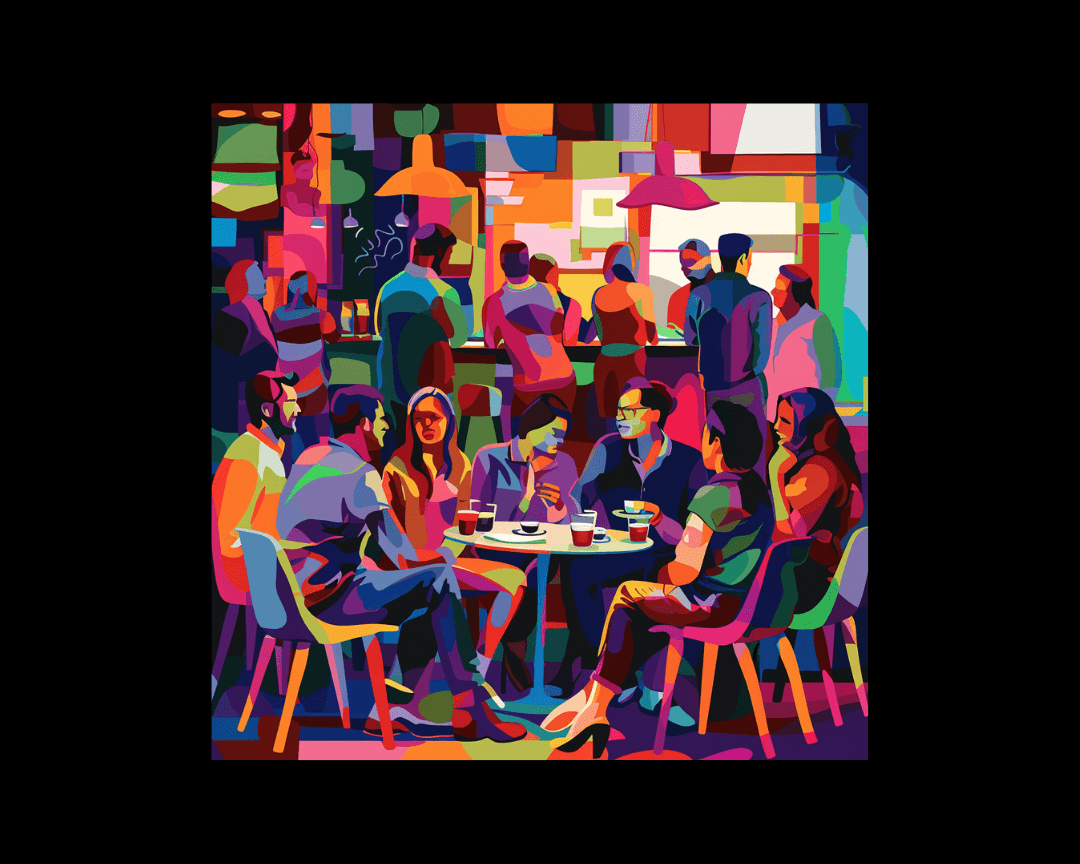Mailchimp's New Campaign: Mass Marketing and Personalized Experiences
Mailchimp, the leading email marketing platform for small and midsize businesses, recently launched a new campaign highlighting the importance of...
%20(1).png)
Popular brands are made and broken by whether they can find the right marketing voice to stand out from the crowd. A marketing personality is separate from any individual person, although it's often driven by the collective vibe of a company's culture. This is very key. Authenticity is a huge priority for consumers, especially millennials. Let's face it, not ever pest control company is going to pull off "apocalyptic" and not every legal firm is going to be "funny."
Mimicry will get you nowhere. Instead, start with what you've got. Your brand has value in the marketplace. If it's going to have an identifiable voice, you need to commit to the right personality. This consistency will contribute (in a huge way) to how recognizable you become. So, how do you decide who you are?
I realize that header has no SEO value and I don't care. I think this is a real thing. Unbeknownst to many people (and to the great boredom of my family and friends), I studied philosophy. And because corporations are comprised of people, the way each individual perceives life and makes decisions will be part of the sum total of that brand's identity. This obviously increases in intensity the higher you go. So, what is the C-suite wearing, saying and doing that is represented in the brand? And, should it be?
For the brand identity to not default to the loudest voice, it's essential that this conversation be had. A brand's voice should be crafted with intention. And, while informed by the personalities in charge, it can be a completely different personality than the primary players. If they all agree.
So, yes, have the conversation. And this is the conversation to have.

Brand personalities aren't going to be quite as identifiable as an Enneagram or Myers-Briggs. First, because you're not mapping something that exists: you're creating it from scratch. So, you have this naked little baby and you get to choose what it says, what it does, what it wears, where it goes. (Note, this is in deep discord from actual parenting where you have no control at all whatsoever.)
Here are some common types of brand personalities and the popular brands who leverage each style.

Jeep, Clif bars, Swiss Army and even cologne brands often embody this "pensively crouched atop a mountain" vibe. Think slinging mud and cracking beers and wide open sky. While historically, this brand personality has been leveraged by companies who want male buyers, it isn't quite so pigeonholed anymore. While there is a lot of testosterone still in play here, there are a variety of brands who use outdoorsy, sporty imagery and language in their branding.




Trying to sell a medical advice, marketing a law firm or running a funeral home, serious is the sweet spot. That probably sounded trite. There are two prongs to this: some brands, by nature, need to be sober and somber (funeral homes). Other brands are doing this strategically. Eliciting an emotional reaction through scare tactics, dystopia, apocalyptic language and caution/warnings are also a component of serious marketers. This works well for cybersecurity companies, for example. There is a little bit of fear, a little bit of darkness and a little bit of nerve in play. It works well.

There are a lot of specific examples within these areas, but they aren't as commercially familiar so I'm keeping it general.


I get that this list may come off stereotypical but, the reality is, there is a huge moral gray area to using marketing like this. It's a fine line between helpful and exploiting. Not all brands walk that line with integrity.

Innovative tech, monopolistic brands, thoughtful design: sophisticated is the tone high-end businesses use to get consumers to crave and pay for "the best." It's important to note that this tone doesn't just go after the top 1% with bulky buying power. This is a voice often used to depict #lifegoals: this is for anyone with discriminating taste. Sophisticated, sleek, refined is very much both a voice and the imagined goal of the target customer.

Black men in a cafe. Guys drinking a coffee. Businessman in a black suit.



This voice appeals to go-getters: the dreamers and the doers. Aspirational marketing copy is essentially presenting an ideal. Sometimes this has to do with high-end but more commonly it's simply setting a good or service in the context of a desired life. For younger audiences, this desirable life may be living in an camper traveling the world. For older audiences, it may be getting the ultimate, dream retirement villa. It works on many levels and for many audiences.



Random note: I actually am really loving how this girl (Michaela Mendes) describes aspirational brands - go here to read her blog on Pixlee.

Smarty-pants. College educated. Woke. The intellectual appeal is meant for the masses but should feel personal: your target customer feels like they know a little more and should get a behind-the-scenes glimpse or inside scoop. Intellectual copy often invites the reader in as a participant into the strategy or structure behind an innovative good or service. This is, unabashedly, an ego appeal. It also gives brands the leeway to use a little higher than the painful eighth-grade-web-copy standard. Better vocabulary, sharp wit, personalized asks: this is the trifecta of a good intellectual marketing voice.

(I am resisting every urge to say Tootsie Pop here... because of that smarty pants owl)



Now, for a breath of fresh air. Pop, fizz. I love a funny brand. It's the ultimate reprieve from everything uppercrust and stodgy and scary and bleh. It's a mental break. It's a joy. Can you tell this is my favorite kind of marketing? There are some killer brands out there rocking the puns, spins, sarcasm and jokes. And I love every second of it, I admit. Here are some ways that humor is one of the most endearing qualities a brand can use.


More importantly than vocabulary for funny brands is really the tone and linguistic tricks you can get away with (maybe this is really why I like it so much). For instance, with this approach, you can:

Friends do sports in a park in Munich

Your brand voice should show up in everything that you do. Knowing who you are and how you will communicate paves the way for a much easier journey. Content creation gets way easier if you're not trying to be everything to everyone. Having a solid brand voice dictates everything from PR efforts to how you respond to negative reviews. Many questions will simply be answered for you. Plus, when a brand voice is separate from, for example, the CMOs, everyone can speak the same language and learn to "be the brand" online. Powerful stuff. Worth doing.

Mailchimp, the leading email marketing platform for small and midsize businesses, recently launched a new campaign highlighting the importance of...

Understanding where your target audience stands in their buying journey is critical for effective marketing. Two pivotal stages in this journey are...
-4.png)
As we step into 2024, the marketing landscape is undergoing rapid transformation, driven by advancements in technology, the rise of artificial...